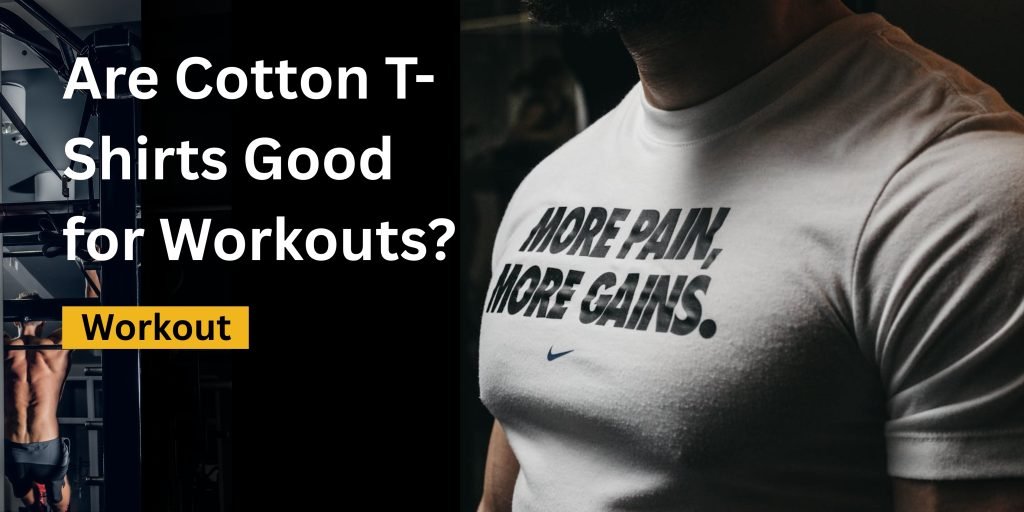In the ever-expanding universe of fitness and performance apparel, one question comes up time and time again at the gym: Are cotton T-shirts good for workout? The activewear business flogs high-tech synthetic fabrics, but not in all wardrobes is cotton king. It depends on how you look at it and whether there is “value” to using the sauna as a form of exercise.
How to Choose Cotton as a Material
Cotton: Cotton is a plant-derived, natural fabric. It is widely used in clothing because of its softness, breathability and affordability. And unlike its synthetic relatives like polyester or nylon, cotton doesn’t have to be treated with chemicals to wick away moisture or manage stink — it’s known for its natural, wear-it-next-to-your-skin feel. When it comes to workout clothing, though, cotton’s suitability depends on the type of workout and type of fit you prefer.
Advantages of Cotton T-Shirts for Exercising
1. Breathability and Comfort
Cotton is very breathable and soft on the skin. Cotton may also be most comfortable for low-impact workouts, like yoga, stretching, walking, or strength training workouts where you take long resting periods. The soft feel of cotton, combined with one of nature’s fastest growing fibers that provides insulation, has been known for exquisite softness.
2. Absorbency
Cotton is thirstier than a California lawn during a drought — it can soak up to 27 times its own weight. That absorbency can be useful for controlling minimal sweat during light exercise or a shorter session, if nothing else will not be too damp. And if you like a fabric’s “feel” when it’s wet, cotton does offer some (literal) touch feedback, which some athletes use to judge their effort.
3. Natural and Hypoallergenic
Since cotton is a natural material, it lacks many chemical treatments applied to and found in synthetic fabrics. This is a great option for folks who have sensitive skin or are looking for something that is eco-friendly or uses ethically sourced materials.
4. Cheap and Easy to Find
Cotton T-shirts tend to be cheaper and more readily available than high-performance gear. Cotton: For the casual exerciser or a newcomer to the world of workouts, this is a budget-friendly fabric to start off with.
The Downside to Cotton in High-Intensity Training
The only downside to cotton, however, is that it is not the ideal type of fabric for high-impact sports or endurance workouts.
1. Poor Moisture Management
The absorbency feature that is great for comfort during low activity levels become a negative attribute with more perspiration. Cotton doesn’t draw moisture away from your skin so it stays wet the entire practice. This can result in a wet, sticky shirt that irritates your skin and leaves you shivering after a workout — particularly in colder climates.
2. Drying Time
Cotton dries incredibly slowly compared to synthetics. This is a hygiene problem in back-to-back or high humidity sessions. Extended retention of wetness can cause odor build-up as well as the growth of bacteria when garment is not washed promptly.
3. Durability Under Repeated Use
While cotton is a strong enough material in everyday usage, it loses tore shape and quality more quickly than other fabrics when it’s constantly exposed to sweat, friction, and hard washing. According to Subru, cotton shirts often stretch, fade, or shrink with time, shortening their shelf life in a fitness closet.
When Cotton T-Shirts Are Okay
Ideal for:
- Light cardio
- Yoga and Pilates
- Casual gym sessions
- Recovery days
- Outings in the great outdoors or relax training
Best avoided in:
- Long-distance running
- HIIT (High Intensity Interval Training)
- High levels of cycling or spinning
- Hot yoga or workouts in saunas
Cotton can be just fine if you’re planning to do something brief and moderate indoors where it’s cool or well ventilated. Otherwise, for heavy sweating or extended workouts, performance fabrics designed to wick sweat and boost breathability will feel superior.
Final Verdict:
Cotton Has Its Place — But Its Role is Limited
But are they all “bad” to work out in? Not necessarily (though it does depend on what type of workout you’re doing). It really is a matter of the activity involved, what the individual prefers and the conditions in which they are wearing it in. For a casual to a medium seriousness, cotton is still there as an affordable alternative. But for serious athletes, endurance enthusiasts, or anyone who sweats a lot in general, apparel made of moisture-wicking synthetic fabrics is typically the better choice.
In short, cotton T-shirts are fine for workouts — if you’re using them correctly. With any piece of fitness gear, the key is knowing the trade-offs when it comes to performance and comfort.

